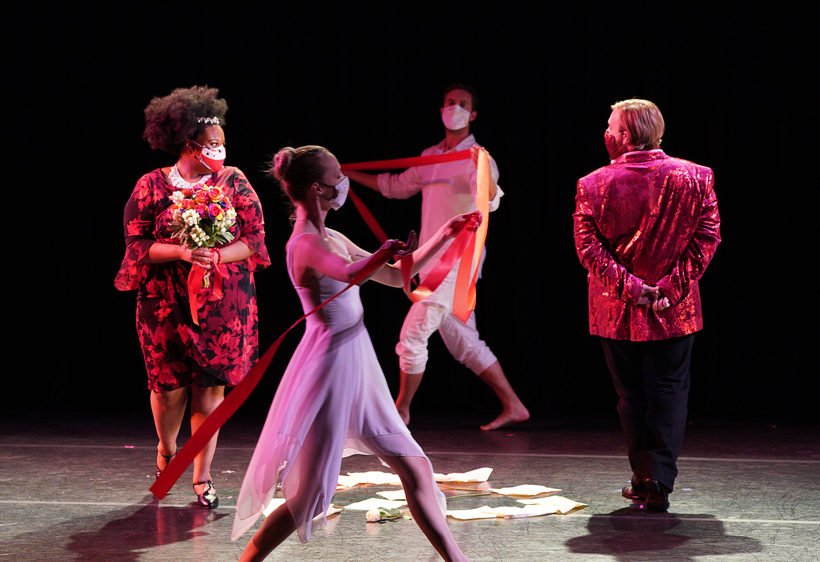The son of a French plantation owner and a slave from Senegal, Joseph Bologne, Chevalier de Saint-George, was born on the island of Guadeloupe on Christmas Day, 1745. Shipped off to France at an early age, the exotic young swashbuckler soon made waves throughout Europe as a swordsman, violinist, and composer. In the latter capacity, his style (along with everyone else’s at the time) bore a family resemblance to Mozart’s. Indeed, Bologne has long haunted the shadows of music history as “the Black Mozart,” a sobriquet fast disappearing, yet there’s reason to suppose that the two musicians were not unknown to each other. For a period of over two months, they lived under the same roof in Paris. (Don’t be picturing La Bohème. The roof was that of a Duke’s mansion.)

Of Bologne’s six operas, only L’Amant Anonyme (The Anonymous Lover) survives. As the title suggests, it’s a romantic comedy, predicated on the feints and self-deceptions that Molière mostly made fun of and Marivaux mostly took to heart. Though the orchestration is chamber-scale, vocal fireworks abound. A cast from the young-artists program of the Los Angeles Opera delivers even the most extravagant displays with remarkable aplomb. In the killer role of Léontine, a far-from-merry widow with a very long-suffering secret admirer, the lustrous soprano Tiffany Townsend conjures up a budding Jessye Norman in aria after aria.
This rarest of rare revivals was mounted and originally streamed at the onset of the pandemic. On a blog post, the show’s director, Bruce A. Lemon Jr., declares as fact that racism accounts for Bologne’s long eclipse; in a program note, the L.A. Opera’s music director James Conlon marshals some documentary evidence to support that view. Still, Time is a ruthless curator. In truth, the Mozart of Le Nozze di Figaro or Così fan tutte has nothing to fear from Bologne. Connoisseurs of Mozart’s bucolic juvenilia—La Finta Giardiniera (The Make-Believe Girl Gardener) say, or Il Re Pastore (The Shepherd King)—will revel in Bologne’s nightingale virtuosities as well as in the graceful dances at the dénouement.
L’Amant Anonyme is available for streaming on the Los Angeles Opera’s Web site
Matthew Gurewitsch writes about opera and classical music for AIR MAIL. He lives in Hawaii

